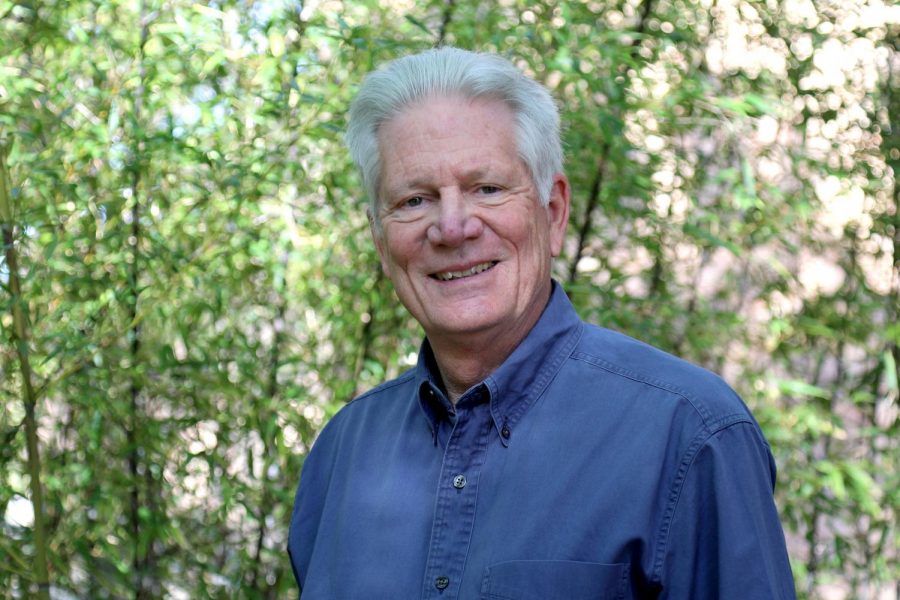Psychology professor discusses mental health during pandemic
Steven Link, Psychology Professor
June 17, 2020
The COVID-19 pandemic is not just an epidemiological crisis, according to the American Psychological Association. It is a mental health crisis, too. We talked to Stephen Link who has taught psychology at Brookhaven since 1978. He said people need to create routines, look for meaning in life and become emotionally resilient to cope with the psychological effects of the pandemic.
Q: What does social interaction do for humans psychologically?
A: Oh, it’s mandatory. I mean, we are a social race, right? The human race. We have banded together forever for survival, and what winds up happening when you pull that away from people is it leaves a huge gap in their psychological well being. We want to be around others and even the people who are introverts. You hear jokes going on now about introverts saying, “Hey, I’ve been preparing for this my whole life,” but they still need people around. We need that contact that’s there. [If] we don’t get it, then that leads to loneliness and depression.
Even the anxiety that we all are having now can be reduced when we talk to other people. You get it out when you talk to people and you connect with others. That’s what our lives are really about: Making contact with other people. So it’s a huge issue that’s there. We’re all focusing on … medical and physical [health]. We’ve got to focus on that but, God, the psychological ramifications of people being on their own is huge.
Q: Why do we need social interaction to avoid things like anxiousness or frustration?
A: It’s built into our brains to be around others. Mothers and their children, relationships, just talking and hanging out with friends, all that makes us feel so much better. It’s an evolutionary process that’s there. We’ve survived because we were able to connect with others and hunt together and take care of each other. It’s just a basic need that we have. There are physiological needs, but above that, there are all those emotional needs that we have, and social needs. If we don’t get that then we feel deprived, which brings on depression and anxiety and everything else.
Q: What does it do to people psychologically to stay home and in the same place for extended periods of time?
A: We’re still animals. Our brains are built like animals trying to survive in a hostile world. I mean, that’s where we are. We’re in a hostile world and when we encounter that hostile world, what happens is our anxiety levels go up. Anxiety is good in a positive way when it’s functional because what it’s saying is that there’s danger out there – we need to do something to protect ourselves. So when you want to protect yourself, what you usually do is connect with other people and talk with other people. You’re trying to find a meaning in life.
I’ve been reading many articles now about how to cope with anxiety and depression, and one of the ways you cope with it is through kind of searching for meaning. There was a fella – God, so many years ago – his name was Viktor Frankl and he wrote a book called “Man’s Search for Meaning.” He was a Holocaust survivor and he came up with the term tragic optimism. [He said] that in order to get up every day when we’re faced with [difficult times] you have to become what they call resilient.
You have to recognize that this is a very difficult time for all of us. In a difficult time, you may feel depressed and anxious and overwhelmed, but what he says is that you have to be able to connect with that [feeling], acknowledge that and then you have to come back and say: “Now, what can I do about this? What does this mean to me? How do I develop more positive emotions?”
If you give in to that overwhelming anxiety, then you wind up just sitting around doing nothing. If you just give in to it, you become depressed.
My wife and I have routines. Routines are wonderful. You get up, you work, you have lunch, you watch Netflix, you go for a walk. What’s really important is people rediscover something called the phone, and pick up the phone to talk to somebody.
It’s not being around somebody physically, but at least you can connect with people. When you start talking about: “What’s your day like? What’s going on? How anxious are you? Are you afraid of this?” you get all that out and you connect with other people, and your brain all of a sudden just kind of relaxes and you become resilient.
When you are a resilient person, you begin to adapt to things, and you can accept tragedies and issues, but then you grow from it and move on from it.
Q: Do you think the underlying fear of this virus exacerbates the psychological effects of the lack of social interaction?
A: It does exacerbate it. We’re not just talking about being by ourselves. Now we’re talking about life and death. I mean, that’s the ultimate fear, right? It heightens the anxiety levels that are there. Somehow or another, we need to manage our fear.
I hate for people to say, “It’s no big thing.” Those people, to me, are dangerous people. In psychology, they call that solution aversion, which is, “I don’t like the solution, which is I can’t be around anybody else, so what I’ll basically decide is that this is no big thing. I can’t get it, so I’ll keep partying and being around other people.” That, to me, is just dangerous, and dangerous for all of us.



